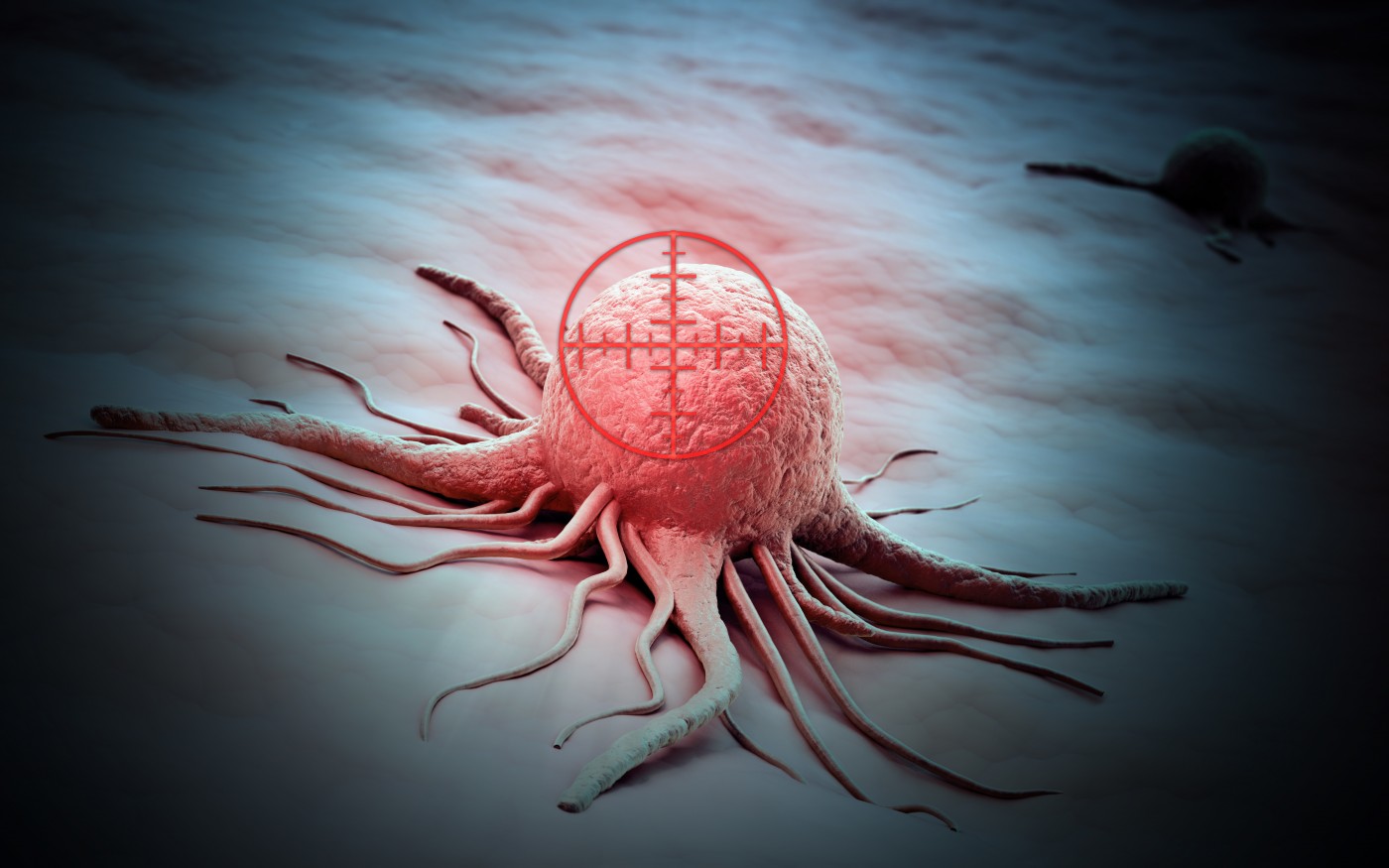Genentech, a member of the Roche Group, recently announced encouraging results on its Phase II NeoSphere trial evaluating Perjeta (pertuzumab) as a neoadjuvant (pre-surgery) treatment in specific early breast cancer patients. The data was presented by Dr. Luca Gianni from San Raffaele Hospital, Scientific Institute, Italy (Abstract #505) on May 31 during the 2015 American Society of Clinical Oncology (ASCO) Annual Meeting held in Chicago.
Apart from skin cancer, breast cancer is the most commonly diagnosed cancer affecting approximately 234,000 individuals every year in the United States, where it is expected to cause 41,000 deaths in 2015. There are different subtypes of breast cancer including human epidermal growth factor receptor 2 (HER2)-positive breast cancer, a type estimated to affect 20 to 25% of breast cancer patients, characterized by cancer cells with an abnormal high expression of HER2 at their surface. HER2-positive cancers are known to be a particularly aggressive form of breast cancer.
Genentech’s Perjeta targets the HER2 receptor, blocking tumor growth and decreasing cancer cell survival. Herceptin (trastuzumab) also binds to the HER2 receptor, although at a different site from Perjeta. The combination of both Perjeta and Herceptin is thought to have an added benefit to block HER2 signalling pathways, consequently effectively preventing tumor cell growth and survival.
Perjeta has been approved as a combined therapy with Herceptin and docetaxel (a chemotherapeutic agent) for individuals with metastatic HER2-positive breast cancer that has spread to other parts of the body, and prior to surgery in individuals with HER2-positive, locally advanced or early stage breast cancer.
The international, multicenter, randomized Phase II NeoSphere trial (Neoadjuvant Study of Pertuzumab and Herceptin in an Early Regimen Evaluation) is evaluating treatment with Perjeta, Herceptin and docetaxel chemotherapy in 417 participants with newly diagnosed HER2-positive, operable, locally advanced, or inflammatory early breast cancer.
Patients were divided into four groups and received four cycles (12 weeks) of neoadjuvant treatment followed by surgery and adjuvant treatment with Herceptin plus chemotherapy for a year. The primary clinical endpoint was pathological complete response (no tumor tissue detectable at the time of surgery in the affected breast and local lymph nodes). Both progression-free survival (PFS) and disease-free survival (DFS) were evaluated three years after treatment.
It was previously reported that the combined therapy Perjeta plus Herceptin and docetaxel significantly improved the complete response rate in patients (39.3%) in comparison to Herceptin and docetaxel (21.5%), Perjeta plus Herceptin (11.2%) or Perjeta plus docetaxel (17.7%). Now, researchers found that HER2-positive early breast cancer patients who received the combined Perjeta regimen prior to surgery were 31% less likely to experience disease worsening, recurrence or death in terms of PFS, and were 40% less likely to have disease recurrence or die in terms of DFS, when compared to treatment with Herceptin and docetaxel. The findings led the team to conclude that patients who received the combined Perjeta regimen were more likely to be alive and disease-free at three years.
“Treating breast cancer early, before it has spread, may help prevent the disease from returning or reaching an advanced stage,” said the chief medical officer and head of Global Product Development Dr. Sandra Horning in a press release. “These new results add to the body of data for Perjeta in the neoadjuvant setting, and we look forward to the Phase III APHINITY study results to better understand the broader impact of Perjeta in the adjuvant treatment of HER2-positive early breast cancer.” The Phase III APHINITY study is evaluating Perjeta, Herceptin and docetaxel in comparison with Herceptin and chemotherapy as adjuvant (post-surgery) treatment in people with HER2-positive early breast cancer. Data from this study is expected to be available in 2016.
Based on the NeoSphere study, Roche has recently submitted Perjeta as a neoadjuvant treatment for people with HER2-positive early breast cancer for a Marketing Authorization Application to the European Medicines Agency (EMA).

